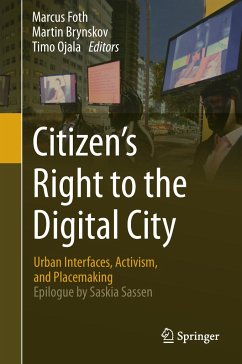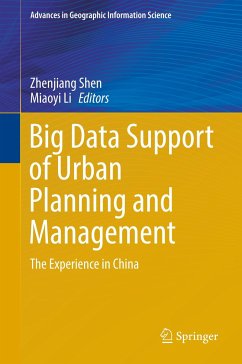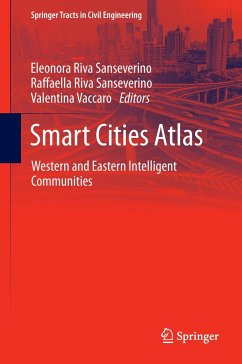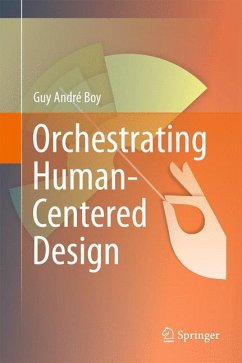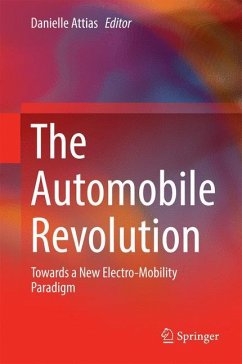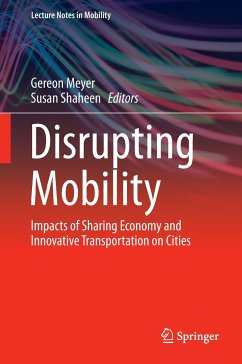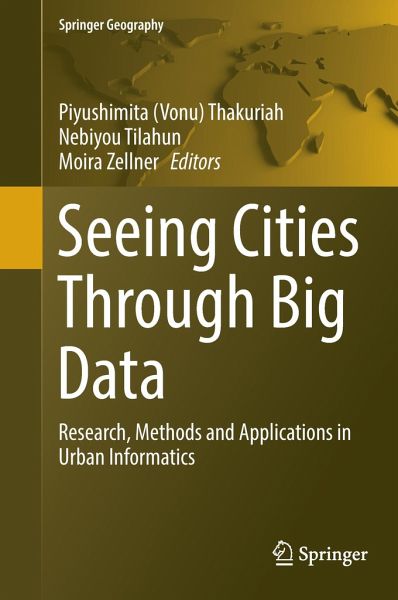
Seeing Cities Through Big Data
Research, Methods and Applications in Urban Informatics
Herausgegeben: Thakuriah, Piyushimita (Vonu); Tilahun, Nebiyou; Zellner, Moira

PAYBACK Punkte
95 °P sammeln!
This book introduces the latest thinking on the use of Big Data in the context of urban systems, including research and insights on human behavior, urban dynamics, resource use, sustainability and spatial disparities, where it promises improved planning, management and governance in the urban sectors (e.g., transportation, energy, smart cities, crime, housing, urban and regional economies, public health, public engagement, urban governance and political systems), as well as Big Data's utility in decision-making, and development of indicators to monitor economic and social activity, and for urb...
This book introduces the latest thinking on the use of Big Data in the context of urban systems, including research and insights on human behavior, urban dynamics, resource use, sustainability and spatial disparities, where it promises improved planning, management and governance in the urban sectors (e.g., transportation, energy, smart cities, crime, housing, urban and regional economies, public health, public engagement, urban governance and political systems), as well as Big Data's utility in decision-making, and development of indicators to monitor economic and social activity, and for urban sustainability, transparency, livability, social inclusion, place-making, accessibility and resilience.





